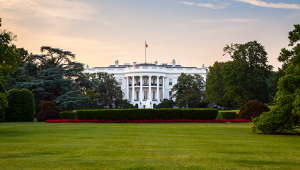By analysing data from 2013 and 2015 for 16 countries the charity calculated firms Abbott, Johnson & Johnson, Merck and Pfizer were not paying an estimated $112m a year of tax across developing countries and $3.7bn in advances economies, in a report launched today.
The organisation highlighted that this money is depriving governments all over the world of “vital revenue” that could be spent on fighting poverty or providing services.
It also stated: “Tax avoidance hits poor countries harder as they rely twice as much on corporate tax as a proportion of government revenue than rich countries.”
The developing countries for which data was available were Chile, Colombia, Ecuador, India, Pakistan, Peru and Thailand.
The rich countries where the companies appeared to be dodging tax included Australia, Denmark, France, Germany, Italy, New Zealand, Spain, the UK and the US.
Rebecca Gowland, Oxfam’s head of inequality, said: “It is an unacceptable irony that pharmaceutical companies are apparently depriving governments of billions in tax revenues that could be invested in healthcare and other measures to tackle poverty.
“Given the amount of money that public health providers spend on pharmaceutical companies’ medicines, the very least the public can expect is that the companies pay their fair share of tax.”
According to the World Health Organization, low- and middle-income countries need an additional $134bn per year until 2025 to reach the UN Sustainable Development Goals' health-related targets.
The Oxfam analysis suggested that the companies were shifting profits out of countries where they do business and into tax havens, or countries that enable low effective corporate tax rates – such as Belgium, Ireland, the Netherlands and Singapore.
It added that these numbers indicate “a strong likelihood of tax avoidance” but do not show “illegal activity”.
Three of the pharmaceutical companies were found to have a presence in UK-linked tax havens - Bermuda, British Virgin Islands, the Cayman Islands and one or more of the Channel Islands.
Although, a lack of transparency in these jurisdictions meant it was difficult for Oxfam to say what loss of tax this resulted in, the charity noted.
Tax Justice Network, an advocacy group, has said that tax avoidance and profit shifting by multinational companies results in annual tax losses of an estimated $500bn.
Alex Cobham, chief executive at the network, said in response to the findings: “There’s no such thing as a tax-free lunch.
“When corporations like Abbott, Johnson & Johnson, Merck and Pfizer duck out on $3.8bn in taxes, it’s the most disadvantaged people who foot the bill, at times through deadly cuts to public health services.”













